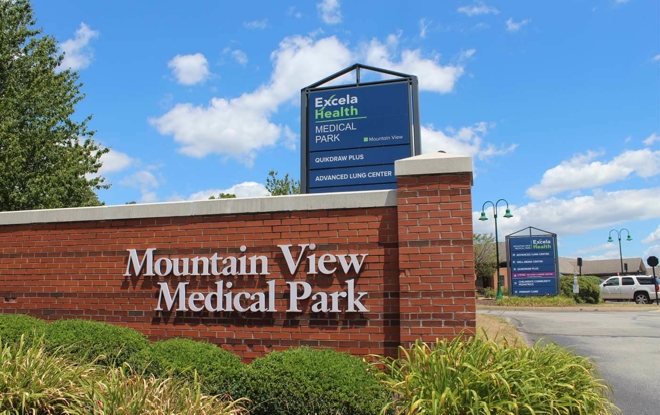About Lung Cancer
What You Need To Know About Lung Cancer
Affecting both men and women, lung cancer is the second most common cancer (discounting skin cancer) and a leading cause of cancer death in both sexes according to the American Cancer Society. The good news: Many lung cancers can be prevented since they are related to smoking, second-hand smoke, and sometimes, radon exposure or other environmental factors.
There is no doubt that lung cancer can be a serious disease. But, those with lung cancer found at an early stage can be treated successfully. While signs and symptoms may not occur at an early stage, being proactive and knowing the risk factors can help you, and your doctor, determine if testing is needed.
Symptoms of Lung Cancer
Most lung cancers do not cause any symptoms until it spreads, but some individuals who are in the early stages may experience symptoms. The key is to alert your doctor to any symptoms you have early on, when treatment may be more effective.
Symptoms may include:
- Persistent cough
- Hoarseness
- Weight loss and loss of appetite
- Coughing up blood or discolored (“rusty”) sputum
- Chest pain that worsens with coughing, deep breathing or laughing
- Shortness of breath
- Weakness or tired feeling
- New episodes of wheezing
- Persistent infections such as bronchitis or pneumonia
Risk Factors and Prevention
- Smoking
- Exposure to second-hand smoke
- Exposure to radon
- Exposure to asbestos and other types of chemicals and carcinogens
- Family history of lung cancer
Prevention, then, may mean avoiding the items listed above (except family history, which cannot be controlled). For those individuals at a higher risk for lung cancer, a test called a Low Dose CT scan, becoming known as the "mammogram" of lung cancer testing, is available at the Excela Advanced Lung Center.
-
 Thoracic SurgeryView Profile
Thoracic SurgeryView Profile -
 Thoracic SurgeryView Profile
Thoracic SurgeryView Profile -
 Thoracic SurgeryView Profile
Thoracic SurgeryView Profile -
 Thoracic SurgeryView Profile
Thoracic SurgeryView Profile -
 Thoracic SurgeryView Profile
Thoracic SurgeryView Profile -
 Thoracic SurgeryView Profile
Thoracic SurgeryView Profile
-

Mount Pleasant, PA 15666
724-689-1440 More Information -

North Huntingdon, PA 15642
724-689-1440 More Information -

Greensburg, PA 15601
724-689-1440 More Information -

Mount Pleasant, PA 15666
877-771-1234 More Information -

Latrobe, PA 15650
877-771-1234 More Information -

North Huntingdon, PA 15642
877-771-1234 More Information -

Mount Pleasant, PA 15666
724-547-1500 More Information -

Greensburg, PA 15601
877-771-1234 More Information
-

Three-Star Rating Highest Honor from Society of Thoracic Surgeons GREENSBURG, PA, January 10, 2024 … The thoracic surgical group of Independence ...
Continue Reading -

Latrobe Bulletin: Heart, lung and vascular specialists from Independence Health System Westmoreland Area will share Center Court at Westmoreland Mall, ...
Continue Reading -

Join the region's leading heart, lung, and vascular specialists from Independence Health System as they share their expertise and offer the latest ...
Continue Reading -

Photo: Independence Health System thoracic surgeons Michael Szwerc (left) and Brian Lace (far right) with Kirby Thornton, Respiratory Care Services, ...
Continue Reading -

If you are a current or former smoker between the ages of 50 and 80 and have at least a 20 pack year history of smoking cigarettes, you likely qualify ...
Continue Reading -

LATROBE, PA, MAY 31, 2022 … A new innovation that holds promise in the fight against lung cancer is now in use at Excela Latrobe Hospital. A ...
Continue Reading -

Tribune Review: Lung cancer is one of the most daunting of cancer diagnoses, but there is hope. By early screening for lung cancer, doctors can ...
Continue Reading -

Guidelines for lung cancer screening have expanded. Both the National Comprehensive Cancer Network (NCCN) and the US Preventative Services Task Force ...
Continue Reading -

GREENSBURG, Pa., November 2021 … Judy Bowman always enjoyed that cigarette with her cup of coffee, even after her mother died of stage IV lung cancer ...
Continue Reading -

LATROBE, PA, October 27, 2021 … Excela Health continues to raise the bar for quality patient care, with the creation of the Excela Health Surgical ...
Continue Reading





.jpg)













.jpg)



